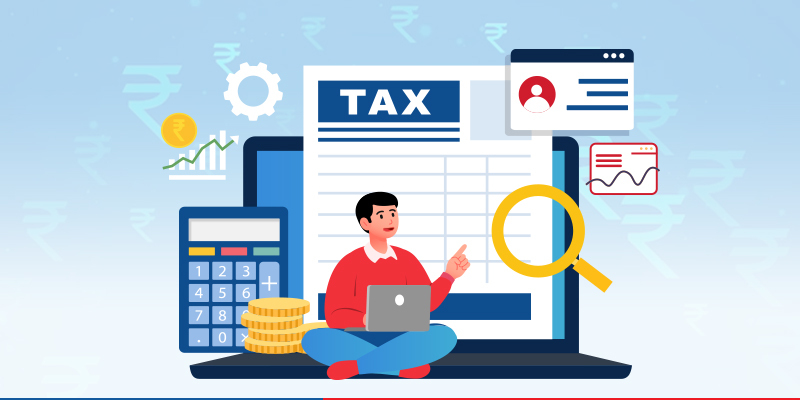What do you want to do?
Understanding Expenditure Tax - Explained

What Is Expenditure Tax in India?
Expenditure tax in India is computed according to The Expenditure Tax Act of 1987 that governs all taxation-related processes associated with the chargeable expenditure that an individual incurs in certain hotels or restaurants.
This act defines chargeable expenditures provided that the charges are incurred in a hotel where the room rent is in excess of Rs.3,000 (per day), or the charges are incurred in a restaurant. An expenditure tax of 15% is collected from restaurants when it renders services deemed taxable and 10% of the charges incurred on payments made at a hotel.
As such a Chargeable Expenditure is defined under the Expenditure Tax Act, 1961 as an expenditure that refers to and includes any payment made to (or expenditure incurred in) the hotel which is connected to the provision of Accommodation that is either residential or otherwise, or accommodation in a hotel on hire or lease. A Chargeable expenditure does not include the following:
- Payments made (expenditures incurred) in foreign exchange (before the 1st of October, 1992).
- Payments made (expenditures incurred) by anyone within the purview of the Vienna Convention on Diplomatic Relations, 1961 or the Vienna Convention on Consular Relations, 1963.
- Payments made (expenditures incurred) in any shop / office which is not owned or managed by the person who carries on the business of a hotel.
Other respective charges such as those for food, drinks, and other services cannot be used to cover up the actual charge of the room rental, etc. If there are discrepancies in this regard, the Assessing Officer will decide on what amounts need to be charged under the various headings in the itemized breakup of the bill. It should be noted that in the case of room rent charges in hotels, the Assessing Officer of the Income Tax Department has the power and freedom to deem whether the breakup of charges has been mentioned in the correct manner.
The expenditure tax definition is not a simple one; the concept of tax expenditure is that, government is giving back money to achieve certain social goals, like strengthening housing sector or industrial sector. Tax Expenditure are not direct spending by government. If it weren't for tax exemptions, the amount deducted would have belong to government itself. So essentially, the Government is not collecting money to be re-distributed later, but providing tax exemptions for good governance.
Tax expenditures are of different types there are those that arise from tax provisions that reduce the present value of taxable income through deferral allowances, or special exclusions, exemptions, or deductions from gross income. These can be incentives from the government to promote investment in certain sectors like housing or rural development, etc., others affect a households after-tax income more directly through tax credits or preferential rates for specific activities.
There are also implications on the budget. Subsidies and their impact on Indian Economy is well documented, and the expenditure tax is looked into that when the finance minister presents the Union Budget each year.
Related Articles
- Income Tax Return - What do you need to know?
- Benefits of E-Filing Your Tax Returns
- How to Make a Tax File Declaration to Your Employer
- All About Advance Tax in Detail
 Term Plan Articles
Term Plan Articles
 Investment Articles
Investment Articles
 Savings Articles
Savings Articles
 Life Insurance Articles
Life Insurance Articles
 Tax Articles
Tax Articles
 Retirement Articles
Retirement Articles
 ULIP Articles
ULIP Articles
Subscribe to get the latest articles directly in your inbox
 Health Plans Articles
Health Plans Articles
 Child Plans Articles
Child Plans Articles
 Popular Calculators
Popular Calculators
Here's all you should know about life insurance.
We help you to make informed insurance decisions for a lifetime.
HDFC Life
Reviewed by Life Insurance Experts
HDFC LIFE IS A TRUSTED LIFE INSURANCE PARTNER
We at HDFC Life are committed to offer innovative products and services that enable individuals live a ‘Life of Pride’. For over two decades we have been providing life insurance plans - protection, pension, savings, investment, annuity and health.

Popular Searches
- Term Insurance Calculator
- Investment Plans
- Investment Calculator
- Investment for Beginners
- Best Short Term Investments
- Best Long Term Investments
- 5 year Investment Plan
- savings plan
- ulip plan
- retirement plans
- health plans
- child insurance plans
- group insurance plans
- income tax calculator
- bmi calculator
- compound interest calculator
- income tax slab
- Income Tax Return
- what is term insurance
- Ulip vs SIP
- tax planning for salaried employees
- HRA Calculator
- Annuity From NPS
- Retirement Calculator
- Pension Calculator
- nps vs ppf
- short term investment plans
- safest investment options
- one time investment plans
- types of investments
- best investment options
- best investment options in India
- Term Insurance for Housewife
- Money Back Policy
- 1 Crore Term Insurance
- life Insurance policy
- NPS Calculator
- Savings Calculator
- life Insurance
- Gratuity Calculator
- Zero Cost Term Insurance
- critical illness insurance
- itc claim
- deductions under 80C
- section 80d
- Whole Life Insurance
- benefits of term insurance
- types of life insurance
- types of term insurance
- Benefits of Life Insurance
- Endowment Policy
- Term Insurance for NRI
- Term Insurance for Women
- Term Insurance for Self Employed
- Benefits of Health Insurance
- Health Insurance for Senior Citizens
- Health Insurance for NRI
- Best Term Insurance Plan for 1 Crore
- personal accident insurance
- Annuity Calculator
- Life Insurance Calculator


